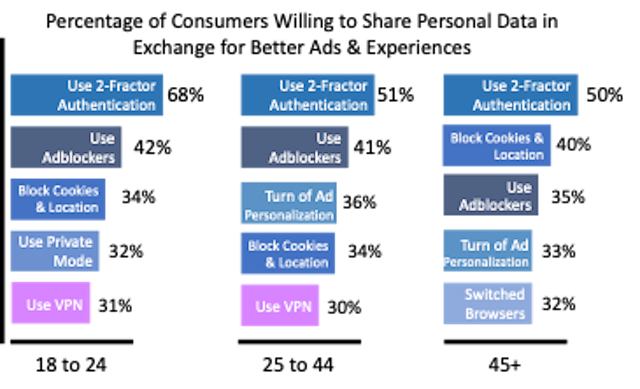Brands need to understand consumers' data privacy is an inalienable right
Brands that protect consumers will be needed and rewarded as nearly 50% of consumers feel that brands that respect consumers’ privacy will have a competitive advantage and 35% will only use brands that share where and how data is collected and give consumers control, says Thomas Damon Brauch, the chief data officer for Asia Pacific at Wunderman Thompson.

Consumers are not averse to sharing some kinds of data, especially if it’s at a group or cohort level
Around the world, we’re seeing record fines levied at tech companies and tech executives being dragged before government hearings, all reflecting a greater awareness of and urgency to protect consumer privacy.
But what does that mean exactly for brands?
Two assumptions get bandied around in pretty much every discussion about consumers and data privacy.
Data privacy is an inalienable right.
Better data leads to a better understanding of consumers, better personalization, and recommendations. And consumers more and more expect brands to know them and provide personalized ads and experiences.
To understand how these statements can be mutually compatible, we at Wunderman Thompson polled 500 adults aged 18 and over across Australia, Singapore, and Hong Kong between November 15th and 17th 2021. The sample was 45% male and 55% female. We strove to parse what privacy means to consumers – expectations, awareness, actions, and whether they think things are getting better or worse. Here’s what we found.

Privacy matters to consumers and they are taking steps on their own to protect it. Over 90% of consumers take action to protect their data and privacy. Two-factor authentication, Adblockers, blocking cookies, and using VPN are the most often cited measures.
However, as we found in our study, consumers are not averse to sharing some kinds of data, especially if it’s at a group or cohort level.
Over 60% of all consumers in Singapore and male consumers in Hong Kong are okay with their gender or approximate age being shared if it meant only seeing ads that were suited for them and or better user experiences. And over 45% of consumers are okay with their hobbies or which brands they browse and buy from being shared again if there is value for them. However, only 15% are willing to share whether they have children and less than 25% will divulge income.
When it comes to brands, Apple is a privacy winner. Compared to Western and China social platforms, phone manufacturers, and search engines, consumers rank Apple highest by almost 2x to the nearest competitor in protecting consumers' privacy. Apple gets top marks for privacy features, not sharing data with other platforms, and overall brand reputation. Privacy is a commercial differentiator and 35% of consumers will only buy Apple or, all things considered, are more likely to buy Apple because they know how to protect consumers’ privacy.
When it comes to who they trust to ensure brands and tech companies respect their privacy, consumers trust local or international government regulations by a factor of four times over cell phone makers and social media companies. Social media companies score the worst on consumers’ trust inability to protect online privacy and data.
Consumers expect the battle over privacy to grow more heated. With the deployment of AR and VR and the way, the metaverse is massively expanding the scope of activities done online, over 80% of consumers feel that more personal data will be collected, and tech companies will know more about us, creating greater privacy consent. And only 24% of consumers feel that current data usage and privacy regulations are sufficient.
Finally, brands that protect consumers will be needed and rewarded – nearly 50% of consumers feel that brands that respect consumers’ privacy will have a competitive advantage and 35% will only use brands that share where and how data is collected and give consumers control.
As brand look to navigate through a future where new platforms, such as AR/VR that requires greater levels of personalization and higher expectations of privacy, here are four things to keep in mind.
-
Give clear guidance to consumers on what data is collected and how it will be used and easily allow consumers to opt out.
-
Focus on 1st party data. Consumers are more comfortable with personalization based on interactions they have had with your brand and the data they provided to you.
-
Select the right partners, partners that reflect a brand’s viewpoints on privacy.
-
Don’t be shy about telling consumers about your respect for their privacy. Consumers will reward you and recommend you.
While tech companies and governments continue to define and guard privacy, and if privacy is an inalienable right, consumers are weighing in with their buying decisions and rewarding brands that do it right. As we look ahead, I’m optimistic that consumers and brands will lead the way.
Thomas Damon Brauch is the chief data officer for Asia Pacific at Wunderman Thompson
